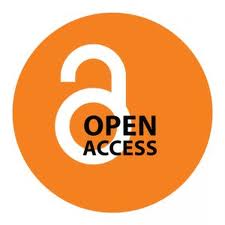 The academic rebellion initiated by Cambridge mathematician Tim Gowers is growing in strength.
The academic rebellion initiated by Cambridge mathematician Tim Gowers is growing in strength.
First a bit of context. The Victorian model of academic publishing has become obsolete because of the Internet and so historical momentum is the only reason these publishers continue to own and profit from researchers’ copyrights, review work and editorial efforts. If you search on-line and find an interesting peer-reviewed science paper, you get to read the abstract, but god forbid that you should click on the link and attempt to actually read it. If you should attempt to do so on one of the non open-source sites, you will smack into a paywall – a demand for some excessive fee, perhaps $45 just to read one paper will be presented.
Mr Gowers blog posting triggered a cascade of events that are now gaining momentum …
- Tyler Neylon created the The Cost of Knowledge, a site that lists three major issues with Elsevier’s business practices (journal prices too high, bundle sales system that sells unwanted journals, and the Elsevier support for Research Works Act (RWA) in the US) – and asks researchers to pledging that they will refrain from providing any or all of these services to Elsevier: publishing; refereeing (peer review); and performing editorial work.
The site now has more than 10,100 names and counting, but what has happened? Well, these events have resulted in …
One month after the site launched, Elsevier dropped support for the RWA. That same day, the bill’s congressional sponsors declared they would take no further action on the bill, effectively killing it.
• Ten people state on The Cost of Knowledge website that they’ve resigned as editors of high-profit journals.
• The Wellcome Trust announced plans to withhold funding unless researchers made their publications freely available.
• The World Bank created their Open Knowledge Repository, in which they’ll publish many free-to-read articles.
• A US bill, the Federeal Research Public Access Act (FRPAA), has been gaining support. This is a bill that, if passed, will expand the National Institutes of Health’s open access publishing requirement to other US taxpayer-funded institutes – basically the opposite of the Research Works Act.
That is all fantastic news, but what has now happened, is quite dramatic. The latest update is that Harvard University says it can’t afford journal publishers’ prices and the University wants scientists to make their research open access and resign from publications that keep articles behind paywalls …
Exasperated by rising subscription costs charged by academic publishers, Harvard University has encouraged its faculty members to make their research freely available through open access journals and to resign from publications that keep articles behind paywalls.
A memo from Harvard Library to the university’s 2,100 teaching and research staff called for action after warning it could no longer afford the price hikes imposed by many large journal publishers, which bill the library around $3.5m a year.
The extraordinary move thrusts one of the world’s wealthiest and most prestigious institutions into the centre of an increasingly fraught debate over access to the results of academic research, much of which is funded by the taxpayer.
Is this a big deal? Yep, it is … enough is simply enough. Robert Darnton, director of Harvard Library explains …
…We faculty do the research, write the papers, referee papers by other researchers, serve on editorial boards, all of it for free … and then we buy back the results of our labour at outrageous prices.
The system is absurd, and it is inflicting terrible damage on libraries. One year’s subscription to The Journal of Comparative Neurology costs the same as 300 monographs. We simply cannot go on paying the increase in subscription prices. In the long run, the answer will be open-access journal publishing, but we need concerted effort to reach that goal.
Locking information behind paywalls then charging excessive fees hurts scientific progress, the way forward is open access, and this latest news greatly helps because all the others watch Harvard and often copy the standard they set, so yes, this is a really good move.
Oh, and least you ponder the though, no Harvard is not going broke, this is not a plea of poverty, just the deployment of some common sense.